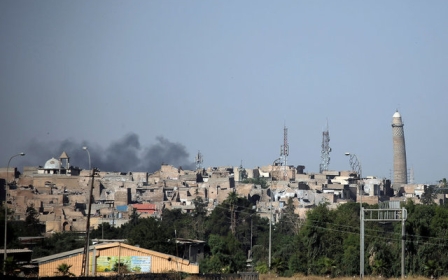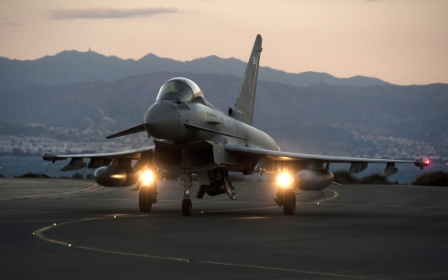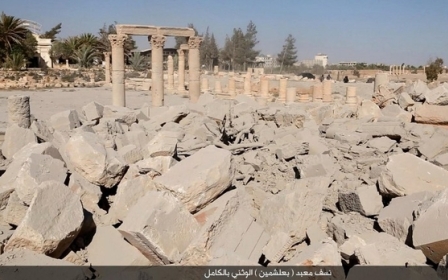Russia bombs IS troops fleeing Syria stronghold

Russian warplanes have launched a series of strikes against Islamic State group (IS) fighters fleeing their Syrian stronghold Raqqa, Moscow said on Thursday, as US-backed forces edge closer to the city.
The defence ministry in Moscow said Russian aviation bombed IS convoys leaving their de-facto capital to the south in the direction of the ancient city of Palmyra on 25 May and overnight from 29 May to 30 May.
The second strike destroyed dozens of cars and pickup trucks and killed scores of IS militants, the ministry claimed in a statement.
"Russian commanders in Syria have warned that any attempt by IS fighters to leave Raqqa through the open corridor towards Palmyra will be decisively intercepted," the ministry said.
On Wednesday, Moscow said it fired four cruise missiles from a submarine and warship in the Mediterranean Sea at IS fighters who had moved close to Palmyra from Raqqa.
A US-backed alliance of Kurdish-Arab fighters, the Syrian Democratic Forces (SDF), is closing in on Raqqa from the north, west and east, but has not yet battled its way to areas south of the city.
Around 200,000 people have fled Raqa, a US military official said, as SDF fighters prepare for an assault on the city.
US Colonel Ryan Dillon, a spokesman for the coalition, said the refugees were moving into camps and built-up settlements nearby.
SDF fighters "have made the decision to ask the civilians to depart, as opposed to staying in Raqa," Dillon said.
Russia has previously suggested that Kurdish forces have wilfully allowed IS to leave the city in the direction of territory controlled by the Syrian government.
Russia has been flying a bombing campaign in Syria since 2015 in support of President Bashar al-Assad, while the US has been leading a coalition mainly targeting IS.
Russian-backed forces retook the UNESCO World Heritage site of Palmyra from IS in March after militants ousted them from the oasis city.
Meanwhile, fierce fighting continues in Mosul - IS's Iraqi capital - as an alliance of Iraq troops backed by Western air support closes in on the ancient mosque that is seen as symbolic of the group's so-called caliphate.
In a desperate last stand, IS fighters are said to have taken up positions within the mosque where IS leader Abu Bakr al-Baghdadi proclaimed a caliphate in 2014.
The group now runs the risk of losing both its Iraqi and Syrian capitals.
New MEE newsletter: Jerusalem Dispatch
Sign up to get the latest insights and analysis on Israel-Palestine, alongside Turkey Unpacked and other MEE newsletters
Middle East Eye delivers independent and unrivalled coverage and analysis of the Middle East, North Africa and beyond. To learn more about republishing this content and the associated fees, please fill out this form. More about MEE can be found here.




